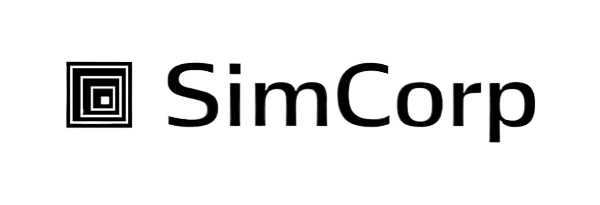Study Abroad in Denmark for Pakistani Students: How To Apply
Denmark offers a unique and enriching experience for international students, including those from Pakistan. Known for its high-quality education system, innovative research, and excellent quality of life, Denmark is becoming an increasingly popular destination for Pakistani students seeking world-class education in a welcoming environment.

Highlights
Here are the key details related to studying in Denmark
500+
Pakistani Students in Denmark
85%
Visa Approval Rate
30+
Total Institutions
Fall
Most Preferred Intake
6.5
Minimum IELTS Score
80
Minimum TOEFL (iBT) Score
PKR 15L+
Approximate Annual Study Cost
PKR 1.5L+
Approximate Monthly Cost of Living
Why Choose Denmark?

World-Class Education
Danish universities are renowned for their high-quality education and research, consistently ranking among the best in Europe.

English-taught Programs
Many programs are offered in English, making it easier for international students to study without language barriers.

Work Opportunities
Students can work part-time during their studies and have the option to stay in Denmark for job-seeking after graduation.
Wondering If Pakistan is right choice for you?

Variety of courses available in Denmark
Bachelor's Degrees
3-5 years
Master's Degrees
2 years
PhD Programs
3 years
Academy Profession Degrees
2 years
Professional Bachelor's Degrees
3.5 - 4 years
Academic Calendar to study in Denmark
Here’s what to expect if you want to study in Denmark
Fall Semester (September - January)
- Main academic term with a wide range of course offerings
- Includes Christmas break in December
Spring Semester (February - June)
- Second main term of the academic year
- Includes Easter break in April
Summer Break (July - August)
- Long break between academic years
- Some universities offer summer courses during this period
Student Visa Requirements for Denmark
You can prepare for your Denmark education journey with these essential visa requirements
- Acceptance into a full-time program at a Danish educational institution
- Proof of sufficient funds to cover living expenses and tuition fees
- Valid passport
- Health insurance coverage
- Proficiency in English or Danish, depending on the program
- Valid passport
- Completed visa application form
- Passport-sized photographs
- Acceptance letter from a Danish educational institution
- Proof of financial means
- Proof of accommodation in Denmark
- Health insurance documentation
- English or Danish language proficiency test results
- Academic transcripts and certificates
- Statement of purpose
- Letters of recommendation
- Criminal record certificate (if applicable)
Admission Requirements in Denmark
General Documents required to study in Denmark
Must be valid for the entire duration of your stay in Denmark.
IELTS, TOEFL, or other accepted language tests.
Official transcripts from previous educational institutions.
For master’s programs, a relevant bachelor’s degree is required.
A well-written statement explaining your reasons for choosing the program and university.
Usually two or three letters from academic or professional references.
A comprehensive overview of your academic and professional background.
Some universities may require a non-refundable application fee.
English Language Proficiency to Study in Denmark
Denmark universities typically accept the following English language tests:
IELTS
Most widely accepted test, with minimum score requirements ranging from 6.0 to 7.0 depending on the program.
TOEFL iBT
Accepted by most Danish universities, with minimum score requirements typically between 80 and 90.
Cambridge English: C1 Advanced or C2 Proficiency
Accepted by many Danish universities as proof of English proficiency.
Other Requirements For
- Master Program
- Bachelors Program
- Bachelor’s degree in a relevant field from an accredited institution
- Minimum GPA of 3.0 or equivalent (some competitive programs may require higher)
- Work experience may be required or preferred for some programs
- Some programs may require GRE or GMAT scores
- Completion of higher secondary education (equivalent to Danish upper secondary school)
- Specific subject requirements depending on the chosen program
- Some artistic programs may require a portfolio or audition
Cost of Studying in Denmark
Overview
While Denmark offers free tuition for EU/EEA students, non-EU/EEA students, including those from Pakistan, are required to pay tuition fees. However, the quality of education and potential for scholarships can make studying in Denmark a worthwhile investment.
Average tuition fee range
Bachelors
PKR 15L+
Masters
PKR 20L+
MBA
PKR 30L+
PhD
Often funded (no tuition fees)
Cost of Living in Denmark
Monthly living expenses for students in the Denmark (in PKR):

Accommodation
60K+ / month

Food
30K+ / month

Transportation
10K+ / month

Other Expenses
20K+ / month
Scholarship for Pakistani students in Denmark
Here are the key details related to studying in Denmark
If you are going to study at a Denmark university, you should be aware that tuition fees can vary depending on factors such as the type of institution, program of study, and location.
Danish Government Scholarships
Full tuition + 300,000 monthly stipend
Erasmus Mundus Joint Master Degrees
Full tuition + 400,000 monthly stipend
Nordic Master Programme
Full tuition
University-specific scholarships
Varies (up to full tuition)
See what our students say
Frequently Asked Questions
Yes, you can work unlimited hours alongside your studies, but ensure it doesn’t affect your academic progress.
While Denmark has a high cost of living, student discounts and careful budgeting can help manage expenses.
Many programs are taught in English, but learning basic Danish can enhance your experience and job prospects.
Denmark offers a job-seeking visa for graduates, allowing them to stay and look for work for up to 2 years after graduation.
Yes, there are various scholarships available, including government, university-specific, and private foundation scholarships.
International students are covered by the Danish healthcare system after registering with the Civil Registration System.
Deadlines vary, but for fall intake, it’s typically between January and March. For spring intake, it’s usually October.
Yes, you can bring your spouse and children, but you must prove sufficient funds to support them.
The process is straightforward if you meet all requirements, with a high approval rate for genuine students.
Denmark uses a 7-point grading scale, with 12 being the highest grade and 2 being the lowest passing grade.











